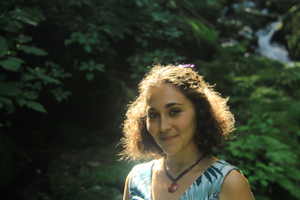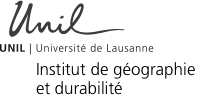
Teaching
Sustainability and lifestyles ( Prof. Arnsperger) (Bachelor (3rd year))
This course aims to link the current ecological challenges to the question of how to change lifestyles in our so-called "developed" societies. Given that the biosphere's ecological budgets are regularly exceeded -- both in terms of climate and in terms of flows of matter and of stocks of nonrenewable resources -- what can citizens, collectives, and nations do in order to adopt behaviors and norms of the good life that will make it possible for humanity as a whole to return permanently inside the planet's resource boundaries?
Assistant (organisation and final exam expert) and follow-up of groups of students. Course given in collaboration with the vice-rector Benoît Frund and his team.
- Autumn semester 2015: follow-up of a group of students working on the possibility of implementing an ecovillage on the campus of UNIL
- Autumn semester 2016: follow-up of a group of students working on autobiographical narratives of individuals that undertook a radical transition in their lifestyle for ecological reasons.
- Autumn semester 2017: follow-up of a group of students working on the motivations and the obstacles encountered by a group of permaculturists willing to implement a permaculture project on a rural commune in Swiss Romandie.
- Autumn semester 2018: ad hoc assistance for the restitution and evaluation of student work
Sciences of the environnement : excursions (Prof. Christian Arnsperger et Prof. Nathalie Chève) (Bachelor, 2016; 2017; 2018)
Organisation with Sarah Koller of two/three days of excursions for Bachelor students (1st year) starting a curriculum in the Faculty of Geosciences and the Environment (UNIL). Those days aim to highlight the alternatives emerging in different domains (energy, water treatment, agriculture, banking, trash treatment) and to enable students to experiment some of them. The objectives are to offer students multiple sources of information in order for them to build an informed and reflexive argument on global trending issues.
- Spring Semester 2016: Visit of an eco-district in Gland city; Visit of the Swiss Alternative Bank (BAS) headquarter in Olten; Visit of a permaculture garden and organic orchard in the Agriculture School of Marcelin (Morges)
- Spring Semester 2017: practice-based workshop with ADER (Association pour le développement des énergies renouvelables - Association for Renewable sustainble energy); Visit of the Swiss Alternative Bank (BAS) headquarter in Olten; Visit of organic orchard and practice-based workshop with a professional farmer on a permaculture garden, in the Agriculture School of Marcelin (Morges)
- Spring Semester 2018: practice-based workshop with energy professionals in Sebasol (Regional center for renewable and self-build energy sources); visit of different agricultural projects in the Agriculture School of Marcelin (Morges) and practice-based workshop with a professional farmer on a permaculture garden.
Money creation and the creation of a sustainable economy (Master, 2016; 2017; 2018)
This cours aim to provide :
- an understanding of the mechanisms of money creation in contemporary capitalist market economies
- thorough knowledge of the "landscape" of ecological finance, with its opportunities as well as its limitations
- a highlight of the importance, for the ecological transition, of currently ongoing debates (within academic circles as well as among citizens' movements) concerning the reform of the monetary system: state money ("Plain Money") on the one hand, citizens' complementary currencies on the other.
Spring semester 2016 & 2017: assistant and expert for the final exam with Sarah Koller
Spring semester 2018: organisation, teaching of the cours (in the form of a seminar) and expert of the final exam with Sarah Koller
(Re-)constructing a "pro-ecological" economic logic? (Master, 2016; 2017; 2018)
The aim of this course, given by Prof. Christian Arnsperger, is to convey a perspective that is both critical and constructive, in order to better comprehend the contemporary economic problems linked to the ecological transition. The theoretical objective is to demonstrate the close links that exist between the modern figure of homo economicus and (i) the refusal of human finitude as well as (ii) the fear of nature and its finitude, both of which lead to the bliund advocacy of economic growth. The aim is to sketch a non-reductionist view of economic man, characterized by a holistic anthropology and a broadened ecological consciousness, could make it possible to re-think the way in which the economy treats nature.
Spring Semesters 2016 and 2017: assistant and final exam expert with Sarah Koller
Spring Semester 2018: organisation and teaching with Sarah Koller (in a form of a seminar-workshop)
Nature's influence on city form (Master, 2017)
The objective of this course is to show how nature shapes the urban representation, production and practices. It revolved around four questions:
- What designate the concepts of urban ecology and of urban agriculture?
- How do the associations for nature protection influence urban/city form?
- Which agricultural practices are currently implemented within the city boudaries?
- How does the urban planning, at different scales, integrate agriculture in its design?
